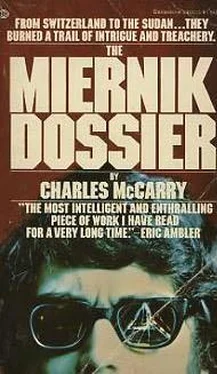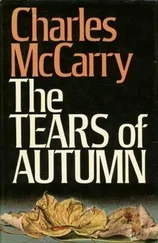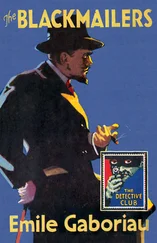6. ALF, as its name suggests, hopes to pass itself off as a revolutionary religious movement in the Mahdist tradition. At the moment it has attracted no figure of sufficient stature from the Islamic community to serve as its leader. Firecracker reports that the ALF is under heavy pressure from Moscow to recruit such a figure.
7. The information in para. 6 is confirmed by radio messages from Soviet control in Dar es Salaam to ALF. We continue to intercept and decode this radio traffic with the aid of transmission schedules and a code key supplied by Firecracker.
8. We believe that this operation has reached a stage where a decision must be made by Headquarters as to whether we should continue this project strictly as an information-gathering activity, or whether action should be taken to gain control over the ALF with a view to neutralizing it.
19. REPORT BY COLLINS TO A BRITISH INTELLIGENCE SERVICE.
Prince Kalash el Khatar stopped by my flat on the evening of 23rd May in order to borrow a sharp knife. (Because of his position in the religious nobility, he is much in demand among Muslims to preside over the ritual slaughter of the goats and sheep that are eaten by Mohammedans at this time. Apparently Ramadan, the annual Muslim fast, has either just ended or is about to commence.)
2. Khatar invited me to accompany him on a trip to his home in the Sudan. His father has bought an air-conditioned Cadillac and has instructed Khatar to see that the car is delivered to him at his palace in western Sudan. This involves driving it from Geneva to Naples, accompanying it aboard ship to Alexandria, and then driving it down the Nile and across the desert to the house of el Khatar. The whole trip would take about a month. Khatar anticipates that we might meet some bandits along the way, and he asked whether I might be able to get my hands on a couple of Sten guns. “We shall only need them in Egypt, where the population is not Arab,” said Khatar. “Once we are across the frontier, you will be quite safe so long as you are with me.” Khatar assures me that he has been schooled since earliest boyhood in desert navigation, so there is little chance that we shall become lost in the trackless waste that lies between Khartoum and his home. “If you become lost in the desert,” he says, “you just go back to where you started and begin the whole trip again. It is quite simple. I will teach you to read the stars, in case we become separated.”
3. Khatar intends to invite Paul Christopher, the American, to accompany him. He believes that Christopher will be able to make repairs on the Cadillac if anything goes wrong with it. Further, he thinks that Christopher must be a good shot and an expert outdoorsman. “Americans are very good with motors and firearms,” Khatar says. (The belief that Christopher is any sort of mechanic is, I think, an illusion. But he may be able to shoot a submachine gun well enough, since he was a parachutist in the American Army.) I have no doubt that Christopher will go along on this journey if it materializes.
4. One other companion is being considered by Khatar. This is Tadeusz Miernik, the Pole. Miernik, as I have reported, is about to lose his passport and perhaps his position at WRO. I mentioned these difficulties to Khatar. He waved them away. “I will tell our Ambassador here to give Miernik a Sudanese passport,” he said. Khatar wishes to take Miernik along because the latter, it appears, has a scholarly interest in Sudanese history and culture. Khatar alleges that Miernik has for some time been writing a book on this subject. “He distracts me with his questions about the look of the country, and what he calls social dynamics,” Khatar said. “I hope to shut him up by letting him see it all with his own eyes.
5. I asked Khatar when he intended to begin the journey. “The car will be ready in June,” he replied. “We can leave as soon after that as we wish. As soon as we have the Sten guns.” Procuring these weapons apparently is going to be my responsibility. I explained that automatic weapons are not easy to come by. “Oh, it’s not so difficult. Half the zealots in Sudan have them,” Khatar replied. I asked why he was so determined to have machine guns. “It is better to have them just now,” he said. “There are madmen in Sudan. Everyone knows that.” I pressed him for further details. “One of the forms of social dynamism in the desert,” said Khatar, “is banditry. Part of the local colour, always has been. And just now there are a lot of silly bastards who think that they’re revolutionaries. The Russians gave them guns and bombs and told them to go and kill people. Naturally, people in Cadillacs are very desirable targets. I rather like the picture of old Miernik hosing down a bunch of black Communists with a Sten gun out of the window of an American limousine. If we turn up the radio and the air conditioner, it will be quite like the telly, won’t it?”
6. Subject to your approval, I agreed to go along on this trip. I should be glad of any assistance you may be able to give in obtaining three or four Sten guns, with ammunition.
20. REPORT BY THE AMERICAN CHIEF OF STATION IN GENEVA (26 MAY).
1. Search of the apartment of Tadeusz Miernik has discovered an extensive file of information on Sudan. A card file with more than 700 entries lists important personalities in that country, together with detailed information on tribal matters, transportation system, principal public buildings, power stations, etc.
2. A large number of books in Arabic were found. It is speculated that Miernik reads and/or speaks Arabic, a fact that he has not disclosed to Christopher or, as far as we can determine, to any of his other friends.
21. DISPATCH FROM WASHINGTON TO THE AMERICAN STATIONS IN GENEVA AND KHARTOUM.
1. Information from a highly sensitive source in Warsaw indicates that a Polish national will be put into Sudan under joint Polish-Soviet control as principal agent advising an indigenous Communist movement.
2. Headquarters believes that the movement in question is the Anointed Liberation Front.
3. Headquarters believes, further, that the Polish national in question may be Tadeusz Miernik. (See Geneva’s reporting, this subject.)
4. We have arranged for the delivery of an automobile in Geneva as a gift to the Amir of Khatar, head of the Bakhent Muslim sect. The Amir has instructed his son, Prince Kalash el Khatar, who resides in Geneva, to accompany the car to Sudan.
5. A trained U.S. agent (Christopher), controlled by Geneva, will accompany Khatar and the automobile.
6. Through the intervention of Christopher, Miernik will be invited to join Prince Kalash on this journey. This arrangement will provide for close surveillance of Miernik by Christopher.
7. After Miernik’s arrival in Sudan, Khartoum should facilitate his contact with the ALF and keep watch on Miernik’s activities through existing assets within this organization.
8. No operation against the ALF will be considered until Miernik is in place and until documentary evidence has been developed by Khartoum that he, as a foreign Communist agent, is controlling the activities of the ALF.
9. When the conditions of para. 8 have been fulfilled, Headquarters will issue further instructions.
22. FROM THE FILES OF WRO.
To Mr. Miernik
The Director General has decided not to renew your temporary contract when it expires on 30 June.
The Director General has asked me to express his gratitude for the excellent work you have done during the term of your temporary contract, together with his best wishes for the future.
2 June N. COLLINS
First Assistant
Note for the file
The Director General, on 2 June, informed the Polish Ambassador of his decision to let the temporary contract of T.Miernik lapse. The Director General asked for assurances that the Polish consulate will, if so requested, renew the passport of Mr.Miernik. The Polish Ambassador replied that this was “a routine matter” in which he could not intervene. He added that Mr.Miernik would undoubtedly wish to return to Poland, where employment awaited him, and would therefore have no immediate use for a valid passport. If in future Mr. Miernik wished to travel again, his application for a passport would be treated like that of any other Polish citizen.
Читать дальше












